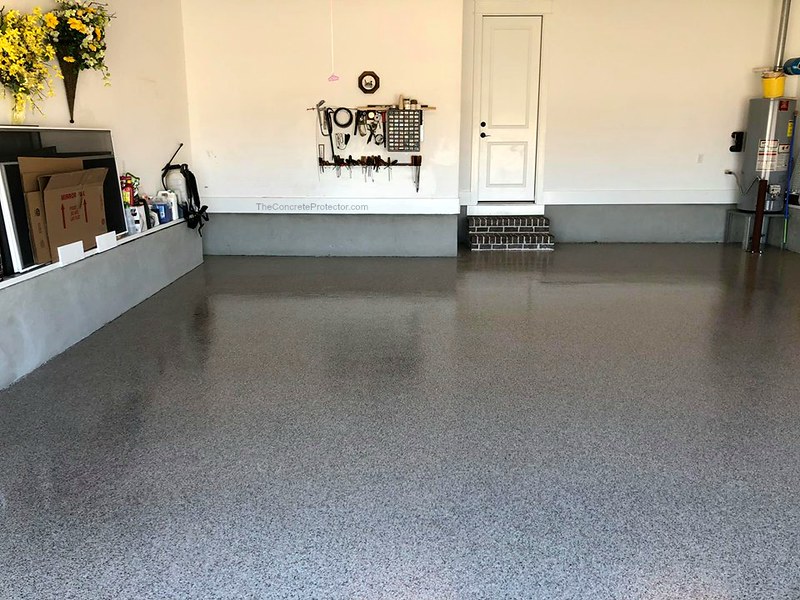 When selecting the right garage floor in Dayton, it’s essential to consider the region’s unique climate. From fluctuating temperatures to high humidity and precipitation, Dayton’s weather can significantly impact the durability and longevity of your garage flooring. Here’s a comprehensive guide to choosing the best flooring options and maintaining them effectively.
When selecting the right garage floor in Dayton, it’s essential to consider the region’s unique climate. From fluctuating temperatures to high humidity and precipitation, Dayton’s weather can significantly impact the durability and longevity of your garage flooring. Here’s a comprehensive guide to choosing the best flooring options and maintaining them effectively.
Understanding Dayton’s Climate
Dayton experiences a variety of weather conditions throughout the year, including hot summers, cold winters, and frequent rain. This range of temperatures and humidity levels can affect the type of garage flooring you should consider.
-
Seasonal Challenges: The summer heat can cause certain flooring materials to expand, while the winter cold can lead to contraction and potential cracking. Additionally, the frequent rainfall can lead to moisture seeping into the flooring, which may result in water damage or mold growth.
-
Why Climate Matters: Choosing a flooring material that can withstand these environmental changes is crucial to ensure your garage remains functional and protected year-round. Materials that lack durability or moisture resistance may deteriorate quickly, leading to costly repairs or replacements.
Considering Dayton’s diverse weather patterns helps guide the decision toward the most suitable garage flooring for your needs.
Choosing Between Epoxy and Polyurea
Epoxy and polyurea are two popular options for garage flooring, each with its own set of advantages and disadvantages. Understanding these can help you make an informed choice.
-
Epoxy Flooring: Known for its affordability and relatively simple installation process, epoxy is a common choice for many homeowners. It provides a smooth, durable finish and is available in various colors and designs. However, epoxy can be susceptible to chipping and yellowing over time, especially in areas with significant temperature shifts.
-
Polyurea Flooring: Polyurea is a newer, more advanced option that offers better flexibility and strength than epoxy. It is highly resistant to chemicals, abrasions, and UV damage, making it ideal for garages exposed to extreme temperature fluctuations. Although polyurea comes with a higher price tag, its durability and quick curing time make it a valuable investment for those looking for long-term performance.
Choosing between epoxy and polyurea often depends on your budget, desired aesthetics, and how much time and effort you want to invest in maintenance.
Moisture Resistance in Flooring
One of the most important aspects to consider for garage flooring in Dayton is moisture resistance. With frequent rain and humidity, your garage flooring must be able to handle damp conditions without compromising its integrity.
-
The Risks of Water Damage: Water seeping into garage flooring can lead to cracks, mold growth, and even foundational damage over time. This is particularly true for garages that are not well-ventilated or those that experience water pooling.
-
Best Moisture-Resistant Materials: Polyurea stands out for its excellent moisture resistance. Its seamless application ensures that water cannot penetrate through cracks or joints. Epoxy, while also water-resistant, can develop cracks over time, allowing moisture to seep through.
Prioritizing moisture-resistant flooring can prevent future headaches and protect your investment from damage caused by Dayton’s unpredictable weather.
Temperature Fluctuations and Durability
The durability of your garage flooring is directly influenced by its ability to withstand temperature fluctuations. Dayton’s climate, with its hot summers and freezing winters, can test the resilience of various flooring options.
-
Impact on Epoxy: Epoxy flooring is durable but not as flexible as polyurea, making it more prone to cracking during severe temperature changes. Its susceptibility to damage from extreme heat and cold can shorten its lifespan.
-
Polyurea’s Edge: Polyurea, on the other hand, has superior flexibility that allows it to expand and contract without cracking. This property makes it ideal for garages exposed to rapid temperature shifts. Additionally, polyurea’s resistance to UV rays ensures it maintains its appearance and structural integrity over time, even in the hot summer months.
Choosing a durable material that can handle Dayton’s temperature extremes will save you time and money in the long run by minimizing repairs and maintenance.
Maintaining Garage Floors in Dayton
Regular maintenance is key to extending the life of your garage flooring, regardless of the material you choose. Proper care ensures that your garage floor stays in top condition, even in Dayton’s challenging climate.
-
Routine Cleaning: Regularly sweep and mop the floor to remove debris and prevent buildup. For polyurea floors, a mild cleaning solution and water are typically enough to maintain their shine and durability.
-
Protective Measures: Using mats or rubber pads under heavy equipment can prevent scratches and dents. For epoxy floors, applying a sealant every few years can help preserve their resistance to water and chemical spills.
-
Inspection for Cracks and Wear: Periodically inspect your garage floor for signs of wear, such as cracks or chips. Addressing these issues early can prevent them from becoming larger problems that require more intensive repairs.
Adopting a proactive maintenance routine will help keep your garage floor in pristine condition and extend its lifespan, even with Dayton’s fluctuating climate.
Selecting the Right Flooring for Dayton’s Weather
Choosing the best garage flooring for Dayton’s unique climate involves careful consideration of material properties, moisture resistance, and durability against temperature changes. While epoxy may be a cost-effective choice for those on a budget, polyurea offers unmatched flexibility and strength that stands up to the challenges of extreme weather conditions. Maintaining your garage floor through regular cleaning and inspections will further enhance its longevity, ensuring your investment stays protected for years to come.






